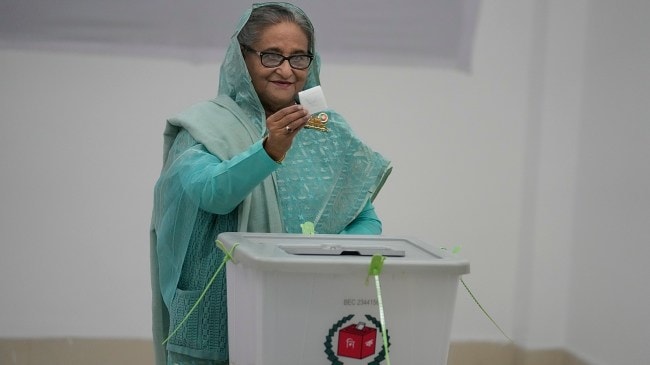Opinion With charges against Sheikh Hasina, ICT in Bangladesh has come full circle
The International Criminal Tribunal has previously executed four Jamaat leaders and a Bangladesh Nationalist Party leader
 Bangladesh has already requested India to extradite Sheikh Hasina. There will now be a renewed attempt at a higher diplomatic level (File Photo/AP)
Bangladesh has already requested India to extradite Sheikh Hasina. There will now be a renewed attempt at a higher diplomatic level (File Photo/AP) Written by Sreeradha Datta
It is an ironic twist of fate to see the International Criminal Tribunal (ICT), formed in 1973 and revived by Sheikh Hasina herself to try those who had committed crimes during the Liberation War of 1971, now poised to indict her. Hasina, the longest-serving prime minister of Bangladesh, is being held accountable for the alleged crimes committed during her last tenure, specifically during the students’ anti-quota uprising that led to her overthrow. Earlier this May, investigators submitted their report on the July–August 2024 killings, naming her as the one who issued the orders for the security forces to open fire on the protesters.
To recall briefly, Sheikh Hasina took office in January 2009 with a huge mandate. To consolidate power, she ushered in amendments, including the abolition of the caretaker government (CTG) system in 2011 — a system unique to Bangladesh, which had served well in assisting the Election Commission to hold free and fair elections. Ironically, it was Hasina who had insisted on legally introducing the CTG in 1996.
While she believed Bangladesh was ready to hold elections without a CTG, the opposition disagreed. Hasina then went on to use the Digital Security Act to silence any dissenting voices. The government’s impunity was exemplified by elections marred by allegations of rigging, and the use of state apparatus to undermine the autonomy and independence of institutions, enabling a coterie that wielded disproportionate influence over policymaking.
During the July–August uprising, security forces initiated a brutal crackdown on protesters. In the face of growing public anger and the Army’s inability to guarantee her safety, she fled to India, where she continues to reside, reassuring her supporters of her return in glory to her homeland. Within days of Hasina’s escape, the Interim Government headed by Nobel laureate Muhammad Yunus took over, promising to bring the accused to justice.
The ICT, which has previously executed four Jamaat leaders and a Bangladesh Nationalist Party (BNP) leader, will now hear the five charges filed against Hasina. A three-judge tribunal — comprising Golam Mortuza Mozumder, Md Shofiul Alam Mahmood, and Mohammad Mohitul Haque Anam Chawdhury — will be hearing the charges. Two others charged are former Home Minister Asaduzzaman Khan and the then IGP Chowdhury Abdullah Al-Mamun. The latter is in police custody, while Hasina and Khan remain outside the country.
This is the first time Hasina has been formally charged by the ICT in connection with the crackdown that took place during the July-August protests. She has also been accused of running secret detention centres. The Interim Government has further alleged that she orchestrated the disappearance of more than 3,500 people. A report by the UN Office of the High Commissioner for Human Rights highlighted the excesses that occurred under her watch. The report also reiterated that up to 13 per cent of those killed during the uprising were children.
most read
Hasina will be tried on five specific charges, including the killing of unarmed protester Abu Sayed at close range, shot in the chest without provocation. The next hearing is scheduled for June 16. Whether physically in Bangladesh or tried in absentia, Hasina will be prosecuted under the ICT Act of 1973.
Bangladesh has already requested India to extradite Sheikh Hasina. There will now be a renewed attempt at a higher diplomatic level. However, the likelihood of India agreeing to extradite Hasina is low. Although a bilateral extradition treaty exists, the caveats are significant. From the Indian perspective, Hasina’s trial, given the prevailing political atmosphere in Bangladesh, is unlikely to be free and fair. Apart from the ICT, requesting the involvement of the International Criminal Court is also an option for Dhaka.
The writer is Professor at the Jindal School of International Affairs, O P Jindal Global University, and a Non-Resident Senior Fellow at the Institute of South Asian Studies, National University of Singapore




